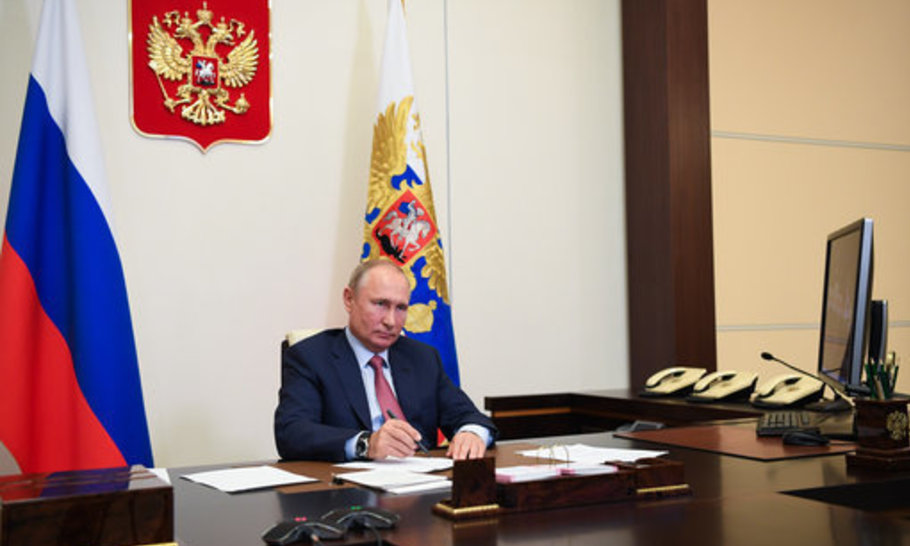Learning from your adversaries

Alexei Nikolsky/Russian Presidential Press and Information Office/TASS
The bien-pensants of the world have been enjoying themselves mocking President Donald Trump, who has revealed he is dosing himself with hydroxychloroquine. Others are taking Vitamin D supplements, as a shortage of Vitamin D in the system is said to lower immunity. President Trump’s drug of choice is taken with the approval of the White House doctor — it is approved by the US Federal Drug Administration for treating malaria, lupus, and rheumatoid arthritis. The WHO describes hydroxycholoquine as an “essential drug” in some treatments.
We have never discovered a vaccine against HIV Aids, but scientists played around with endless drug cocktails in the 1980s and at last found one that could contain the malady. There are experiments reported in the medical press of hrydroxychloroquine mixed with other drugs possibly helping in some Covid-19 cases.
To put it mildly, the science is unproven. Treating doctors and scientists as gods who cannot be challenged is probably the biggest mistake Boris Johnson has made in his handling of the crisis.
They have done endless U-turns from herd immunity to face masks and in any honest post-mortem on Johnson’s failures, questions need to be asked about the scientists in whom he placed his trust — perhaps a little too much.
Meanwhile there are many examples in Europe and further afield of much lower casualty rates than Britain. And instead of endless mantras about “Britain is best”, “Britain is leading the world” perhaps some examination of what happens in other countries may be profitable.
Take Russia. Even allowing for dodgy Russian statistics (as if ours were perfect) the number of deaths in Russia is remarkably low compared to the UK, France, Italy, Spain or Belgium.
Russia has two and a half times the population of Britain — 146 million. So far, according to official figures, there are 3,009 deaths, less than one tenth of the UK total. The new statistic that 55,000 more people have died in Britain compared to this time last year also suggests that, if care home deaths are included, then the UK death rate for Covid-19 is far higher than in Russia.
So why do Russians do not die as fast as Brits from Covid-19? Russian vanity argues that having to survive Stalin, the Nazi invasion, the gulag, Chernobyl and the still existing police state has toughened up the Russian gene pool.
Russians also have their own quirky approach to medicine. Russians have been swallowing immunity strengthening drugs for decades as summer turns to autumn and the flu and cold season kicks in. In the 1970s, Russian doctors working for the Red Army’s special forces developed a drug called Arbidol. It became as popular as Bovril or Marmite. It was regarded as having protective properties against illness.
Arbidol is now mass produced at very low prices, a bit like the vitamin supplements on sale on the shelves of every Poundland.
Russian health services are of a very low standard, unless you are an oligarch or top state administrator. Health insurance is third world in terms of covering lost pay in case of illness. They have such bad medicine and such poor health insurance that they drag themselves to work rather than lose income.
So Russians swallow and drink immunomodulators like Arbidol before every flu epidemic in spring and autumn, and may have gained some extra immunity from it. But Arbidol is not approved by America’s FDA or the European Medicines Agency.
The scientists and doctors may throw up their hands in horror but as we move to managing and treating Covid-19 as we did with HIV-Aids, rather than dreaming of the Koh-I-Nor of a vaccine which are very hard to invent against viruses, perhaps drugs like Arbidol from Russia and even the pill President Trump takes might be looked at again. Throughout it all, it’s important to remember that even one’s political adversaries can be right sometimes.





